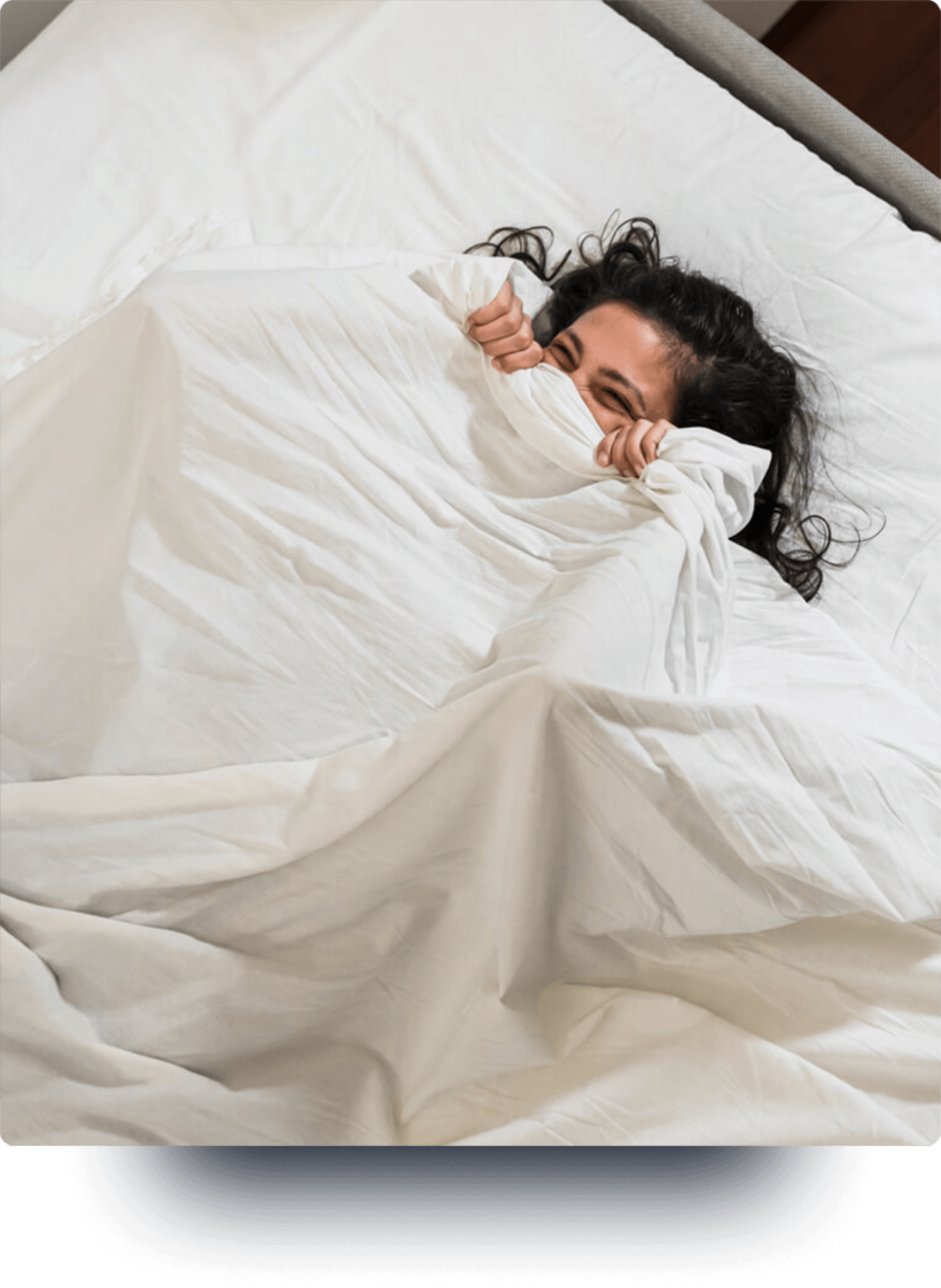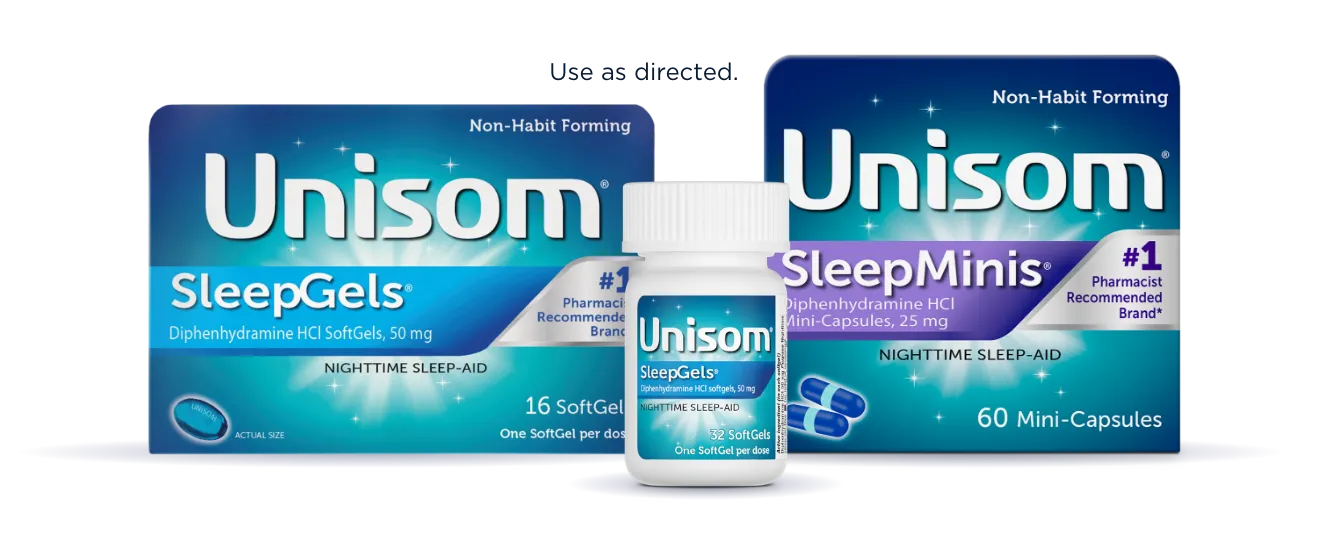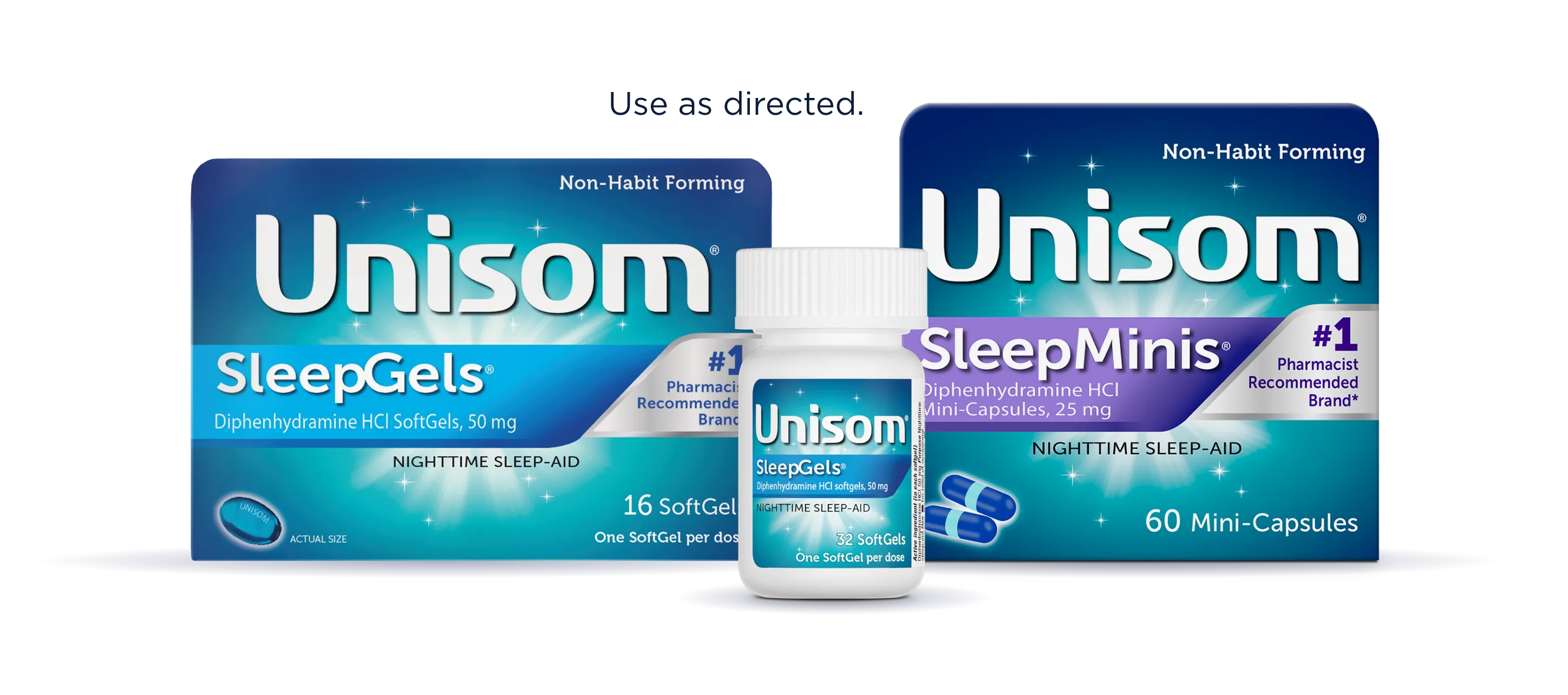What is Melatonin and how does it help with sleep?
Melatonin is a hormone produced naturally by the body, mainly in the pineal gland in the brain.1 It plays an important role in helping one fall asleep and stay asleep, and is hence often referred to as the sleep hormone.2,3
The production of melatonin by the pineal gland is influenced by light. In other words, when it is dark at night, more melatonin is produced, and when daylight sets in, melatonin production goes down. As melatonin levels in the body begin to rise around 10:00pm at night, it brings about a feeling of sleepiness about 2 hours thereafter. Melatonin levels peak between 2:00 and 4:00am, and then gradually subside as daylight sets in, reaching very low levels around 5:00am and promoting wakefulness. Melatonin thus regulates the body’s circadian rhythm (24-hour internal clock) and helps the body sleep and wake up in sync with night and day.1,2,4,5
Melatonin physiologically induces sleep and relaxation by binding with and activating specific receptors in the brain. These receptors have high affinity for melatonin and even low levels of the hormone binding to their structure can activate them. The activated receptors in turn help reduce the time to fall asleep in the early part of the night as well as decrease brain activity, to facilitate sleep and promote a consistent state of rest.1
How can Melatonin help improve sleep quality?
Changes in the time to fall asleep, how long one stays asleep and quality of their sleep may be linked to a variety of factors including physiological and psychological characteristics (age, general health, stress and anxiety levels), and lifestyle habits (travel, use of light-emitting screens, and work timings). These are situations where low melatonin production can cause the body to fall out of sync with night and day.1,6,7,8,9,10 In some of these situations, melatonin may be used to promote natural and physiological sleep, and help improve the quality of rest. Examples of some common everyday situations where melatonin may be used to reset the circadian cycle and help improve sleep quality include:
- Aging: Elderly people above the age of 60 have low/reduced/negligible production of melatonin and as a result some of them complain about not being able to fall asleep, waking up frequently throughout the night, and waking up too early in the morning. Melatonin supplements may be considered to help sleep faster and improve duration and quality of sleep.
- Jet lag: When air travelers cross multiple time zones rapidly, their 24-hour internal clock becomes out of sync with the local day and night times at their destination, causing them to stay awake at night and feel sleepy or tired during the day. The severity of symptoms can vary by individual, number of zones crossed, and direction of travel (eastbound travel tends to have less of an impact). Melatonin, when taken close to the local destination bedtime may help people fall asleep faster and sleep better, thereby helping them adapt to the new time zone sooner. However, differences in how individuals experience jet lag may strongly influence the effectiveness of melatonin.8,9
- Working night shifts - When the normal sleep schedule is disturbed, their 24-hour internal clock needs to adapt to the new timing by advancing or delaying the normal sleep and corresponding wake-up times as needed. Melatonin may help a night-worker adapt to their new sleep-wake cycle faster by helping them sleep during the day and sleep longer.10
What are the sources of Melatonin?
In addition to its natural production within the body, a well-rounded diet of fruits, vegetables, healthy meats, and nuts can help provide melatonin along with other nutrients.11 Melatonin is also available as a dietary supplement, in the form of capsules, tablets or gummies.2
Unisom’s new Simple Slumbers is a drug-free supplement that contains melatonin. Its proprietary blend features a unique combination of melatonin and botanicals designed to help improve sleep.†
Dosage
In the United States, melatonin is marketed as a dietary supplement under the FDA's Dietary Supplement Health and Education Act. Since melatonin is not regulated as a drug, no effective dosing is defined by the FDA. However, in melatonin studies, dosages range from 0.1 to 10 mg and are often administered before bedtime.11,12 Unisom’s Simple Slumbers provides 5 mg of melatonin per serving.

Rest assured
Unisom® is the #1 doctor-recommended OTC sleep-aid brand, with a range of options to help you fall asleep and wake up feeling refreshed.
Unisom® SleepGels® contain the histamine blocker diphenhydramine HCl. Blocking histamine production can help you fall asleep faster and stay asleep.
Unisom® SleepTabs® contain doxylamine succinate, which is a clinically proven histamine blocker that works in a similar fashion to diphenhydramine. Unisom® SleepTabs® can help you fall asleep 33% faster and get a full night's sleep.
Find the Unisom® product that’s right for you.
Professional References
1. Grivas TB, Savvidou OD. Melatonin the "light of night" in human biology and adolescent idiopathic scoliosis. Scoliosis. 2007;2:6.
2. National Center for Complementary and Integrative Health, U.S. National Institutes of Health. Melatonin: What You Need To Know. Available at: https://www.nccih.nih.gov/health/melatonin-what-you-need-to-know. Accessed June 07, 2021.
3. Tarocco A, Caroccia N, Morciano G, et al. Melatonin as a master regulator of cell death and inflammation: molecular mechanisms and clinical implications for newborn care. Cell Death Dis. 2019;10(4):317.
4. Zisapel N. New perspectives on the role of melatonin in human sleep, circadian rhythms and their regulation. Br J Pharmacol. 2018;175(16):3190-3199.
5. Meyer-Ficca ML, Meyer RG. Circadian Clock, Epigenetic Regulators (Sirtuins), and Metabolism. In: Huhtaniemi I, Martini L. eds. Encyclopedia of Endocrine Diseases. 2nd ed. Elsevier Inc.2019:690-699.
6. Karasek M. Melatonin, human aging, and age-related diseases. Exp Gerontol. 2004;39(11-12):1723-1729.
7. Hale L, Kirschen GW, LeBourgeois MK, et al. Youth Screen Media Habits and Sleep: Sleep-Friendly Screen Behavior Recommendations for Clinicians, Educators, and Parents. Child Adolesc Psychiatr Clin N Am. 2018;27(2):229-245.
8. Herxheimer A, Petrie KJ. Melatonin for the prevention and treatment of jet lag. Cochrane Database Syst Rev. 2002;(2):CD001520.
9. Mahadevan SV, Strehlow MC. Preparing for International Travel and Global Medical Care. Emerg Med Clin North Am. 2017;35(2):465-484.
10. Thottakam BMVJ, Webster NR, Allen L, Columb MO, Galley HF. Melatonin Is a Feasible, Safe, and Acceptable Intervention in Doctors and Nurses Working Nightshifts: The MIDNIGHT Trial. Front Psychiatry. 2020;11:872.
11. Meng X, Li Y, Li S, et al. Dietary Sources and Bioactivities of Melatonin. Nutrients. 2017;9(4):367.
12. Savage RA, Zafar N, Yohannan S, Miller JMM. Melatonin. In: StatPearls. Treasure Island (FL): StatPearls Publishing. 2020.
Related articles
†These statements have not been evaluated by the Food and Drug Administration. This product is not intended to diagnose, treat, cure or prevent any disease.




